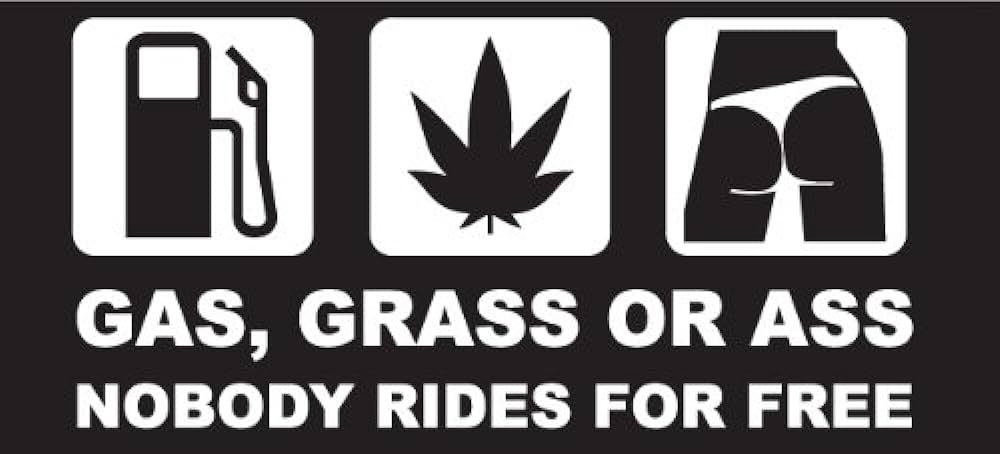Ass Gas Or Grass

In the realm of colloquialisms, few are as colorful and ambiguous as the phrase “ass, gas, or grass.” Originating from the countercultural movements of the 1960s and 70s, this phrase serves as a tongue-in-cheek response to the question of payment for a ride or favor. It presents three options: offering one’s company contributing fuel money or providing marijuana . However, beneath its surface lies a deeper reflection of societal values, ethics, and environmental concerns.
The first option, “ass,” denotes the idea of providing companionship or simply being good company during a journey. While seemingly innocuous, this option raises questions about the commodification of human interaction and the ethics of transactional relationships. Is it morally acceptable to exchange one’s presence for a service or favor, and does this diminish the value of genuine connection?
Moving on to “gas,” we encounter the pragmatic consideration of monetary exchange for fuel. In a world increasingly aware of climate change and environmental degradation, the reliance on fossil fuels presents a moral dilemma. The extraction, production, and consumption of gas contribute significantly to greenhouse gas emissions and exacerbate climate change. Therefore, the choice to pay for gas implicates individuals in a system that perpetuates environmental harm.
Finally, we confront the option of “grass,” referring to the exchange of cannabis as a form of payment. While marijuana legalization has gained traction in various parts of the world, its ethical implications remain complex. The recreational use of cannabis raises questions about responsible consumption, potential health risks, and legality. Moreover, the acceptance of cannabis as a form of payment highlights shifting societal attitudes towards substance use and the blurred lines between legality, morality, and personal choice.
Beyond its literal interpretation, “ass, gas, or grass” prompts reflection on broader societal values and ethical considerations. It challenges us to confront issues of commodification, environmental responsibility, and personal agency. In a world grappling with pressing social and environmental challenges, such colloquialisms serve as reminders of the complexities inherent in our everyday choices.
Conclusion
As we navigate the crossroads of “ass, gas, or grass,” perhaps the most valuable currency we can offer is thoughtful consideration. By critically examining the implications of our actions and the values they reflect, we can strive towards a more ethical and sustainable future. So, the next time we encounter this whimsical phrase, let it serve as a catalyst for introspection and dialogue, rather than merely a lighthearted exchange.





